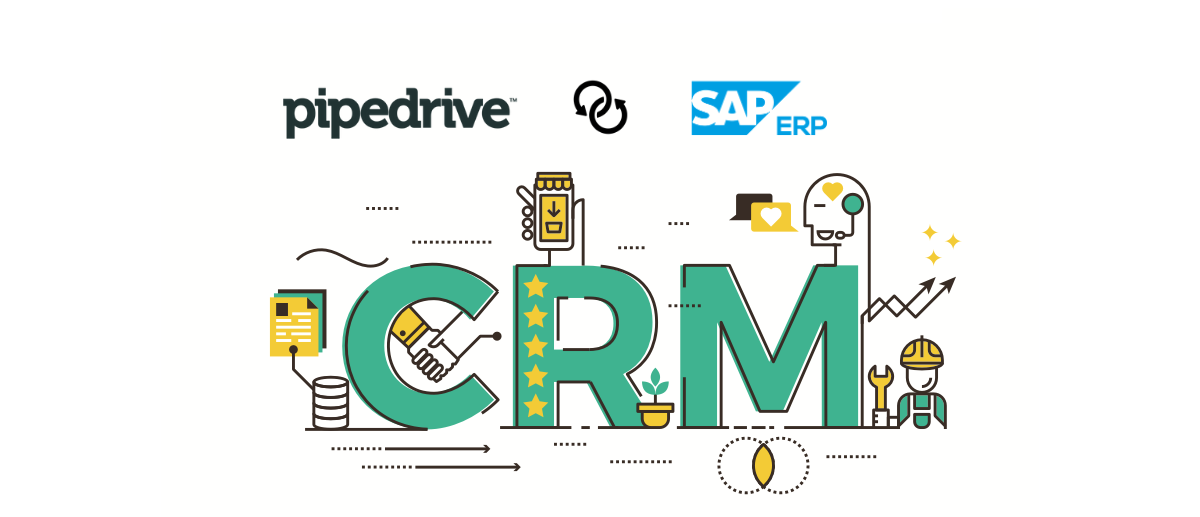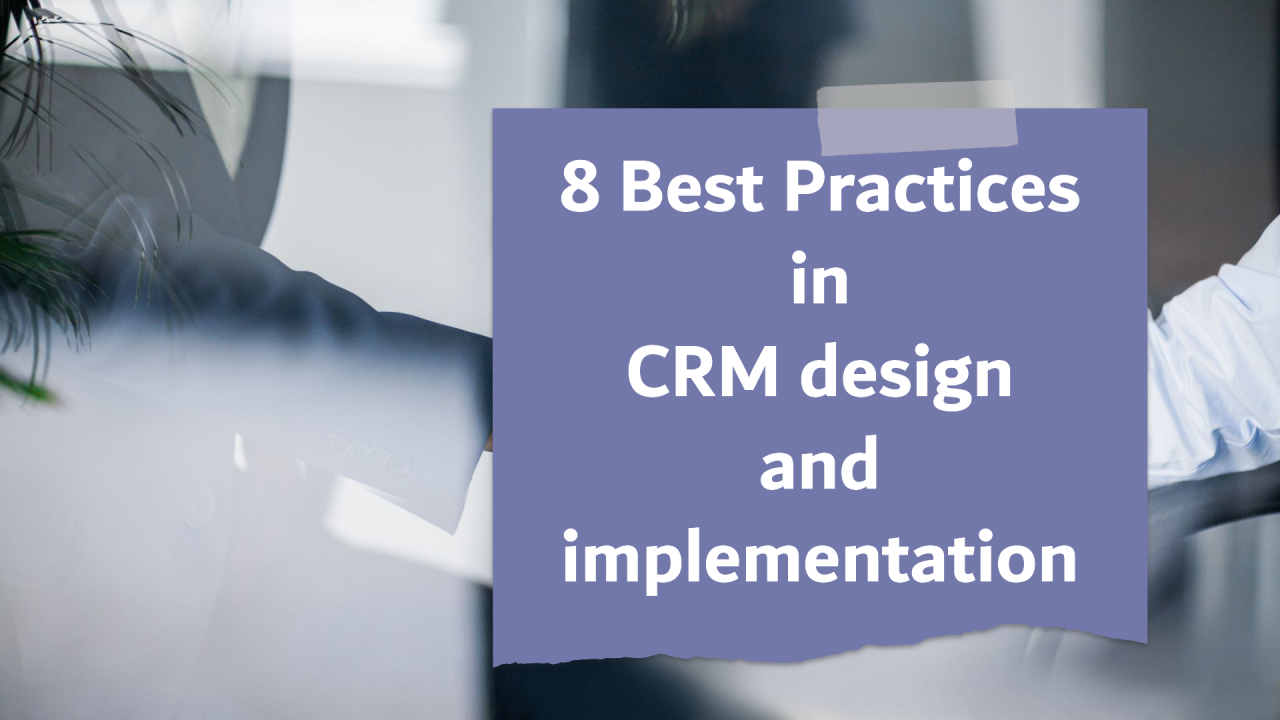Boost Your Conversions: Mastering CRM, Marketing, and Social Proof
In the ever-evolving landscape of digital marketing, businesses are constantly seeking innovative strategies to capture attention, nurture leads, and ultimately, drive conversions. The integration of Customer Relationship Management (CRM) systems, coupled with strategic marketing efforts and the powerful influence of social proof, has emerged as a potent combination. This comprehensive guide delves deep into the intricacies of CRM marketing, explores the critical role of social proof, and provides actionable insights to help you optimize your approach and achieve remarkable results.
Understanding the Pillars: CRM, Marketing, and Social Proof
Before we dive into the practical applications, let’s establish a solid understanding of the core components: CRM, marketing, and social proof. Each element plays a crucial role in the overall success of a marketing strategy, and their synergistic relationship is what truly unlocks their potential.
Customer Relationship Management (CRM)
At its core, a CRM system is a technology that helps businesses manage and analyze customer interactions and data throughout the customer lifecycle. Think of it as the central nervous system of your customer-facing operations. It allows you to:
- Centralize Customer Data: Consolidate all customer information – contact details, purchase history, communication logs, preferences – in one accessible location.
- Improve Customer Segmentation: Group customers based on various criteria (demographics, behavior, purchase patterns) to tailor marketing efforts.
- Automate Processes: Streamline tasks like email marketing, lead nurturing, and sales follow-ups, freeing up valuable time and resources.
- Enhance Communication: Facilitate seamless communication across different departments (sales, marketing, customer service).
- Track Performance: Monitor key metrics like sales, customer satisfaction, and marketing campaign effectiveness.
The benefits of a robust CRM system are numerous, including increased sales, improved customer retention, and enhanced operational efficiency. It provides a 360-degree view of your customers, enabling you to personalize your interactions and deliver a superior customer experience.
Marketing: The Art and Science of Reaching Your Audience
Marketing is the process of creating, communicating, and delivering value to customers. It encompasses a wide range of activities, from market research and product development to advertising, public relations, and sales. Effective marketing aims to:
- Attract and Engage: Capture the attention of your target audience and entice them to learn more about your products or services.
- Build Brand Awareness: Increase the visibility and recognition of your brand in the marketplace.
- Generate Leads: Identify and nurture potential customers who are interested in your offerings.
- Drive Conversions: Persuade prospects to take a desired action, such as making a purchase or signing up for a newsletter.
- Foster Customer Loyalty: Cultivate long-term relationships with customers to encourage repeat business and advocacy.
Modern marketing strategies are increasingly data-driven, relying on analytics to understand customer behavior and optimize campaigns. This data-driven approach allows marketers to make informed decisions and maximize their return on investment (ROI).
Social Proof: The Power of Validation
Social proof is a psychological phenomenon where people look to the actions of others to determine how to behave in a given situation. It’s the implicit assumption that if others are doing something, it must be the right thing to do. In the context of marketing, social proof manifests in various forms:
- Testimonials: Positive statements from satisfied customers.
- Reviews and Ratings: Feedback from customers on platforms like Google, Yelp, and Amazon.
- Case Studies: Detailed accounts of how your products or services have helped other customers achieve success.
- Social Media Mentions: Posts, comments, and shares from customers on social media platforms.
- Expert Endorsements: Recommendations from industry leaders or influencers.
- Number of Customers/Users: Displaying the number of customers or users who have already purchased your products or services.
Social proof is incredibly powerful because it builds trust and credibility. It alleviates the risk associated with making a purchasing decision, as potential customers see that others have already validated your offerings. In a world saturated with marketing messages, social proof cuts through the noise and provides tangible evidence of value.
Integrating CRM with Marketing: A Synergistic Approach
The true power of CRM and marketing lies in their integration. When these two functions work in harmony, you can create highly targeted, personalized, and effective marketing campaigns that drive conversions and foster customer loyalty. Here’s how:
1. Data-Driven Segmentation
Your CRM system provides a treasure trove of customer data, which can be leveraged to segment your audience based on various criteria, such as:
- Demographics: Age, location, income, education, etc.
- Behavior: Website activity, past purchases, email engagement, etc.
- Interests: Products browsed, content consumed, social media interactions, etc.
- Purchase History: Frequency of purchases, average order value, product preferences, etc.
- Lead Source: How they first encountered your brand (e.g., website, social media, referral).
By segmenting your audience, you can tailor your marketing messages to resonate with specific groups of customers. This targeted approach increases the relevance of your campaigns, leading to higher engagement rates and conversions.
2. Personalized Communication
CRM data allows you to personalize your communication with customers at every touchpoint. This includes:
- Email Marketing: Sending targeted email campaigns based on customer segments, purchase history, and behavior.
- Website Personalization: Displaying personalized content and offers based on a customer’s browsing history and preferences.
- Social Media Advertising: Targeting specific customer segments with relevant ads on social media platforms.
- Customer Service: Providing personalized support and assistance based on a customer’s needs and history.
Personalization makes customers feel valued and understood, increasing their likelihood of engaging with your brand and making a purchase.
3. Automated Workflows
CRM systems enable you to automate various marketing processes, saving you time and resources. Examples of automated workflows include:
- Lead Nurturing: Sending a series of targeted emails to nurture leads through the sales funnel.
- Abandoned Cart Recovery: Sending automated emails to customers who have abandoned their shopping carts.
- Welcome Sequences: Sending a series of welcome emails to new subscribers or customers.
- Post-Purchase Follow-up: Sending automated emails to customers after they have made a purchase, providing support, and encouraging repeat business.
Automation ensures that your marketing efforts are consistent and efficient, allowing you to reach more customers with less effort.
4. Lead Scoring and Qualification
CRM systems can be used to score and qualify leads based on their engagement and behavior. This helps you prioritize your sales efforts and focus on the most promising leads. Lead scoring can be based on various factors, such as:
- Website Activity: Pages visited, content downloaded, forms submitted, etc.
- Email Engagement: Open rates, click-through rates, and replies.
- Social Media Interactions: Mentions, shares, and comments.
- Demographic Information: Job title, company size, industry, etc.
By prioritizing qualified leads, you can improve your sales efficiency and increase your conversion rates.
5. Performance Tracking and Analysis
CRM systems provide valuable insights into the performance of your marketing campaigns. You can track key metrics, such as:
- Website Traffic: Number of visitors, bounce rate, time on site, etc.
- Lead Generation: Number of leads generated, lead source, conversion rate, etc.
- Sales Conversions: Number of sales, average order value, revenue generated, etc.
- Customer Retention: Customer churn rate, customer lifetime value, etc.
- Marketing ROI: Return on investment for each marketing campaign.
By analyzing these metrics, you can identify what’s working and what’s not, and make data-driven decisions to optimize your marketing efforts.
The Power of Social Proof in CRM Marketing
Social proof is a powerful tool that can significantly enhance the effectiveness of your CRM marketing campaigns. By incorporating social proof into your marketing efforts, you can build trust, increase credibility, and drive conversions. Here’s how:
1. Testimonials and Reviews
Testimonials and reviews are some of the most effective forms of social proof. They provide authentic evidence of the value you offer and build trust with potential customers. You can incorporate testimonials and reviews into your CRM marketing campaigns in several ways:
- Website: Display testimonials and reviews prominently on your website, especially on your product pages and landing pages.
- Email Marketing: Include testimonials and reviews in your email marketing campaigns, such as in welcome emails, product announcements, and promotional offers.
- Landing Pages: Feature testimonials and reviews on your landing pages to build credibility and encourage conversions.
- Social Media: Share positive reviews and testimonials on your social media channels.
- Case Studies: Develop detailed case studies showcasing how your products or services have helped customers achieve success.
When using testimonials and reviews, be sure to include the customer’s name, company, and a photo to add authenticity. Consider including a video testimonial for a more impactful experience.
2. Case Studies
Case studies are in-depth accounts of how your products or services have helped your customers achieve their goals. They provide detailed evidence of your value proposition and build trust with potential customers. You can use case studies in your CRM marketing campaigns by:
- Creating Dedicated Case Study Pages: Develop dedicated pages on your website that showcase your case studies.
- Email Marketing: Send targeted emails featuring case studies to relevant customer segments.
- Lead Magnets: Offer case studies as lead magnets in exchange for contact information.
- Sales Presentations: Use case studies in your sales presentations to demonstrate the value you offer.
- Website Integration: Integrate case studies with relevant products or services on your website.
Case studies are particularly effective for complex products or services where customers need to understand the tangible benefits. They can be used to showcase your expertise and build credibility.
3. Social Media Mentions and Engagement
Social media provides a platform for customers to share their experiences with your brand. Monitor social media channels for mentions of your brand and engage with customers who are sharing positive feedback. You can use social media mentions and engagement in your CRM marketing campaigns by:
- Monitoring Social Media: Use social listening tools to monitor mentions of your brand on social media.
- Responding to Comments and Questions: Respond to comments and questions promptly and professionally.
- Sharing Customer Content: Share positive customer content on your social media channels.
- Running Contests and Giveaways: Encourage customer engagement by running contests and giveaways.
- Creating a Sense of Community: Foster a sense of community among your customers on social media.
Social media engagement helps build brand loyalty and encourages customers to share their positive experiences with others.
4. Displaying Trust Signals
Trust signals are elements on your website that build trust and credibility with potential customers. These can include:
- Security Badges: Display security badges, such as SSL certificates, to reassure customers that their information is safe.
- Customer Logos: Display logos of your customers, especially well-known brands, to build credibility.
- Awards and Certifications: Showcase any awards or certifications you have received.
- Guarantee Badges: Offer guarantees, such as money-back guarantees, to reduce the risk for customers.
- Contact Information: Make your contact information easily accessible, including a phone number, email address, and physical address.
- Privacy Policy: Have a clear and concise privacy policy that explains how you collect and use customer data.
Trust signals help build confidence with potential customers and encourage them to make a purchase.
5. Leveraging Influencer Marketing
Influencer marketing involves partnering with influencers to promote your products or services. Influencers have a loyal following and can influence their audience’s purchasing decisions. You can use influencer marketing in your CRM marketing campaigns by:
- Identifying Relevant Influencers: Research and identify influencers who are relevant to your target audience.
- Partnering with Influencers: Partner with influencers to create content, such as product reviews, tutorials, or social media posts.
- Tracking Results: Track the results of your influencer marketing campaigns, such as website traffic, lead generation, and sales conversions.
- Integrating Influencer Content: Integrate influencer content into your CRM marketing campaigns, such as in email marketing, landing pages, and social media posts.
Influencer marketing can significantly boost brand awareness and drive conversions, especially when targeted at the right audience.
Implementing a Winning Strategy: Practical Steps
Now that we’ve explored the theoretical aspects, let’s delve into the practical steps you can take to implement a successful CRM marketing strategy that leverages the power of social proof.
1. Choose the Right CRM System
Selecting the right CRM system is the foundation of your strategy. Consider the following factors when choosing a CRM:
- Functionality: Does the system offer the features you need, such as contact management, lead tracking, sales automation, and marketing automation?
- Scalability: Can the system scale to accommodate your growing business needs?
- Integration: Does the system integrate with your existing marketing tools, such as email marketing platforms, social media platforms, and e-commerce platforms?
- Ease of Use: Is the system user-friendly and easy to learn?
- Cost: Does the system fit within your budget?
- Reporting and Analytics: Does the system provide comprehensive reporting and analytics capabilities?
Popular CRM systems include Salesforce, HubSpot, Zoho CRM, and Pipedrive. Research different options and choose the one that best aligns with your specific needs and budget.
2. Integrate Your Marketing Tools
Once you’ve chosen a CRM system, integrate it with your other marketing tools. This will allow you to share data between your CRM and other platforms, such as your email marketing platform, social media platforms, and e-commerce platform. Integration ensures that your data is consistent across all platforms and that you can track the performance of your marketing campaigns effectively. Most CRM systems offer integrations with popular marketing tools, making this process relatively straightforward.
3. Segment Your Audience
Use your CRM data to segment your audience based on various criteria, such as demographics, behavior, interests, and purchase history. This will allow you to tailor your marketing messages to specific groups of customers, increasing the relevance of your campaigns. Start by creating a list of customer segments and then determine the best way to target each segment with personalized content and offers.
4. Create Personalized Content
Develop personalized content for each customer segment. This includes creating targeted email campaigns, website content, and social media ads. Use your CRM data to personalize your content, such as by including the customer’s name, purchase history, and preferences. Personalization shows customers that you understand their needs and increases their likelihood of engaging with your brand.
5. Automate Your Workflows
Automate your marketing workflows to save time and resources. This includes automating lead nurturing, abandoned cart recovery, welcome sequences, and post-purchase follow-up. Automation ensures that your marketing efforts are consistent and efficient, allowing you to reach more customers with less effort. Most CRM systems offer automation capabilities, allowing you to set up triggers and actions based on customer behavior.
6. Gather and Showcase Social Proof
Actively gather and showcase social proof to build trust and credibility. This includes:
- Asking for Testimonials and Reviews: Encourage satisfied customers to provide testimonials and reviews. Make it easy for them to leave feedback by providing a link to a review form.
- Creating Case Studies: Develop detailed case studies showcasing how your products or services have helped customers achieve success.
- Monitoring Social Media: Monitor social media channels for mentions of your brand and engage with customers who are sharing positive feedback.
- Displaying Trust Signals: Display trust signals on your website, such as security badges, customer logos, and awards.
- Leveraging Influencer Marketing: Partner with influencers to promote your products or services.
Social proof is essential for building trust and credibility, and it can significantly impact your conversion rates.
7. Track Your Results and Optimize
Continuously track your results and optimize your marketing efforts. Use your CRM system to track key metrics, such as website traffic, lead generation, sales conversions, and customer retention. Analyze these metrics to identify what’s working and what’s not. Make data-driven decisions to optimize your marketing campaigns and improve your ROI. Regular analysis and optimization are essential for long-term success.
Common Pitfalls to Avoid
While CRM marketing and social proof offer significant advantages, there are also common pitfalls to be aware of and avoid.
- Ignoring Data Privacy: Always prioritize data privacy and comply with relevant regulations, such as GDPR and CCPA. Be transparent with customers about how you collect and use their data.
- Sending Generic Messages: Avoid sending generic marketing messages that are not personalized. Customers are more likely to ignore generic messages.
- Over-Automating: While automation is important, don’t over-automate your marketing efforts. Maintain a balance between automation and human interaction.
- Neglecting Customer Service: Provide excellent customer service to build trust and loyalty. Respond to customer inquiries and complaints promptly and professionally.
- Failing to Track Results: Track your results and analyze your performance regularly. This will help you identify what’s working and what’s not.
- Ignoring Negative Feedback: Address negative feedback promptly and professionally. Use negative feedback as an opportunity to improve your products, services, and customer experience.
Conclusion: The Future of Marketing
The combination of CRM, marketing, and social proof is a powerful force in today’s competitive business landscape. By leveraging the insights gleaned from customer data, crafting targeted and personalized marketing campaigns, and harnessing the power of social proof, businesses can build stronger customer relationships, drive conversions, and achieve sustainable growth.
The future of marketing is about building authentic connections, providing value, and creating exceptional customer experiences. By embracing these principles and continuously adapting to the evolving needs of your customers, you can position your business for success in the years to come.
Remember, the key to success lies in a customer-centric approach. Put your customers first, understand their needs, and provide them with the value they seek. This will not only drive conversions but also foster long-term loyalty and advocacy, creating a virtuous cycle of growth and success.
By mastering the art of CRM marketing and embracing the power of social proof, you can unlock the full potential of your marketing efforts and achieve remarkable results. Start today, and watch your business flourish!





